Dagstuhl Perspectives Workshop 19072
The Role of Non-Monotonic Reasoning in Future Development of Artificial Intelligence
( Feb 10 – Feb 15, 2019 )
Permalink
Organizers
- Anthony Hunter (University College London, GB)
- Gabriele Kern-Isberner (TU Dortmund, DE)
- Thomas Meyer (University of Cape Town, ZA)
- Renata Wassermann (University of Sao Paulo, BR)
Contact
- Shida Kunz (for scientific matters)
- Jutka Gasiorowski (for administrative matters)
Schedule
Nonmonotonic reasoning (NMR) addresses a fundamental problem that classical-logical methods in computer science encounter when modelling real-world problems: New information may not only extend previously held knowledge (this would correspond to a monotonic extension) but can drastically change knowledge in that conclusions turn out to be wrong and need to be replaced by alternative conclusions. Nonmonotonic phenomena are present in all areas of our everyday lives mostly due to uncertain and incomplete information, but also due to humans reasoning with restricted resources only; on the other hand, humans do very well in determining relevant contexts of reasoning, so reasoning from only incomplete information may well be on purpose and for sake of efficiency. Nowadays, with computer systems being part of nearly all areas of our lives, the need for computational intelligence to be able to also reason in a nonmonotonic way becomes more and more urgent.
The international Nonmononotonic Reasoning (NMR) workshops have provided a premier specialized forum for researchers in non-monotonic reasoning and related areas since 1984. Over the years, NMR topics and results have been disseminated broadly in many different areas such as answer set programming, computational models of argument, and description logics for ontologies. However, research on core topics of NMR has been scattered across different subcommunities that no longer collaborate in depth on a regular base. As a consequence, much time and effort for solving specific, but in principle similar problems is wasted, general relevance of proposed solutions is overlooked, and general methodological competence is no longer developed on the same level of quality as ten years ago.
This Perspectives Workshop will bring together researchers both from core topics and peripheral areas of NMR, but also attract researchers from other scientific domains in which recent developments have shown an increased relevance of NMR topics, encompassing researchers from various communities within computer science and engineering (e.g., artificial intelligence, classical and non-classical logics, machine learning, agent and multiagent systems), as well as from other disciplines like philosophy and psychology. The workshop will be relevant for artificial intelligence in general: For AI to progress from pattern recognition and machine learning to broader cognitive reasoning, it needs to have common sense reasoning, and this in turn calls for a deeper understanding of NMR. So this workshop is about identifying how NMR can be useful for future AI, and how NMR can be developed for those requirements. The goal of this workshop is to reshape NMR as a core methodology for artificial intelligence being able to meet present and future challenges. For this, we will identify research questions which are central to different areas, clarify their connections to NMR, and develop new perspectives for NMR research. Moreover, the workshop will foster collaborations between researchers from different subcommunities to concentrate efforts for solving basic NMR problems, and to disseminate NMR solutions to other areas.
 Anthony Hunter, Gabriele Kern-Isberner, Thomas Meyer, and Renata Wassermann
Anthony Hunter, Gabriele Kern-Isberner, Thomas Meyer, and Renata Wassermann
Press Reviews
- Castles - Modern Science in Old Walls
TV report by Emil Mura, first aired in SR TV on May 2, 2019
Nonmonotonic reasoning (NMR) addresses a fundamental problem that classical logic methods in computer science encounter when modelling real-world problems: New information may not only extend previously held knowledge (this would correspond to a monotonic extension) but can drastically change knowledge in that conclusions turn out to be wrong and need to be withdrawn. Nonmonotonic phenomena are present in all areas of our everyday lives mostly due to uncertain and incomplete information, but also due to humans reasoning with restricted ressources; on the other hand, humans do very well in determining relevant contexts of reasoning, so reasoning from incomplete information only may well be on purpose and for sake of efficiency. Nowadays, with computer systems taking on increasingly sophisticated roles in our lives, the need for computational intelligence to be able to also reason in a nonmonotonic way becomes increasingly urgent.
The international Nonmononotonic Reasoning (NMR) workshops have provided a premier specialized forum for researchers in non-monotonic reasoning and related areas since 1984. Over the years, NMR topics and results have been developed in areas such as answer set programming, computational models of argument, and description logics for ontologies. However, research on core topics of NMR has been scattered into different subcommunities that no longer collaborate in depth on a regular basis. As a consequence, much time and effort for solving specific, but in principle similar problems is wasted, general relevance of proposed solutions is overlooked, and general methodological competence is no longer developed to the same degree as ten years ago.
This Perspectives Seminar brought together researchers both from core topics and peripheral areas of NMR, but also attracted researchers from other scientific domains in which recent developments have shown an increased relevance of NMR topics. More precisely, researchers from various subcommunities within computer science and engineering (e.g., artificial intelligence, classical and non-classical logics, machine learning, agent and multiagent systems) met in Dagstuhl, but also researchers from other disciplines like philosophy and psychology contributed to the seminar. The overall goal of this seminar was to reshape NMR as a core methodology for artificial intelligence being able to meet present and future challenges. For AI to progress from pattern recognition and machine learning to broader cognitive reasoning, it needs to have commonsense reasoning, and this in turn calls for a deeper understanding of NMR. So participants of this workshop discussed in what shape NMR would be useful for future AI, and how NMR can be developed for those requirements. We started the seminar with brief survey talks on answer set programming, belief revision, argumentation, argument mining, machine learning, conditional reasoning, description logics, as well as NMR and cognition, and had some technical talks on central topics of NMR afterwards. For the rest of the week, we had working groups on NMR and learning, NMR and cognition, engineering NMR, and commonsense reasoning. We let people freely choose which working groups they wanted to attend each day, which resulted in vivid discussions and a particularly dynamic exchange of ideas. On the last day of the seminar, each working group presented their ideas and future plans, and we closed this seminar with a plenary discussion on the future of NMR. This report shows brief summaries of the presentations and of the results of the working groups.
 Anthony Hunter, Gabriele Kern-Isberner, Thomas Meyer, and Renata Wassermann
Anthony Hunter, Gabriele Kern-Isberner, Thomas Meyer, and Renata Wassermann
- Zied Bouraoui (Artois University - Lens, FR) [dblp]
- Arina Britz (University of Stellenbosch, ZA) [dblp]
- Giovanni Casini (University of Luxembourg, LU) [dblp]
- Célia da Costa Pereira (Laboratoire I3S - Sophia Antipolis, FR) [dblp]
- Luc De Raedt (KU Leuven, BE) [dblp]
- James P. Delgrande (Simon Fraser University - Burnaby, CA) [dblp]
- Thomas Eiter (TU Wien, AT) [dblp]
- Eduardo Fermé (University of Madeira - Funchal, PT) [dblp]
- Laura Giordano (University of Eastern Piedmont - Alessandria, IT) [dblp]
- Andreas Herzig (University of Toulouse, FR) [dblp]
- Anthony Hunter (University College London, GB) [dblp]
- Gabriele Kern-Isberner (TU Dortmund, DE) [dblp]
- Sebastien Konieczny (Artois University - Lens, FR) [dblp]
- Maria Vanina Martinez (University of Buenos Aires, AR) [dblp]
- Thomas Meyer (University of Cape Town, ZA) [dblp]
- Abhaya Nayak (Macquarie University - Sydney, AU) [dblp]
- Odile Papini (University of Marseille, FR) [dblp]
- Marco Ragni (Universität Freiburg, DE) [dblp]
- Gavin Rens (KU Leuven, BE) [dblp]
- Hans Rott (Universität Regensburg, DE) [dblp]
- Ken Satoh (National Institute of Informatics - Tokyo, JP) [dblp]
- Guillermo R. Simari (National University of the South - Bahía Blanca, AR) [dblp]
- Ivan José Varzinczak (Artois University - Lens, FR) [dblp]
- Serena Villata (Laboratoire I3S - Sophia Antipolis, FR) [dblp]
- Renata Wassermann (University of Sao Paulo, BR) [dblp]
- Emil Weydert (University of Luxembourg, LU) [dblp]
Classification
- artificial intelligence / robotics
- semantics / formal methods
- verification / logic
Keywords
- nonmonotonic and defeasible reasoning
- commonsense reasoning
- default and plausible reasoning
- conditional reasoning
- probabilistic and uncertain reasoning

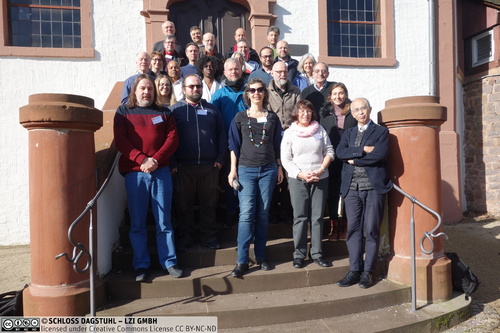
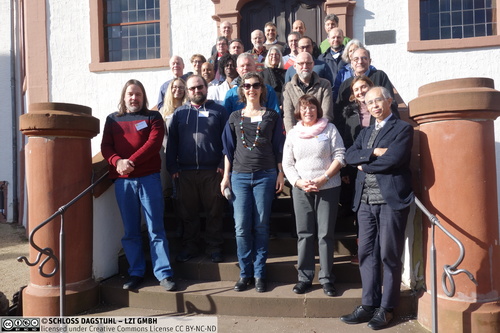
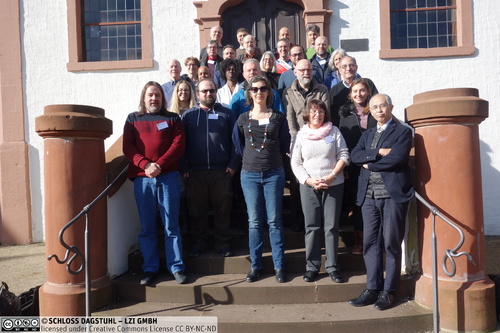
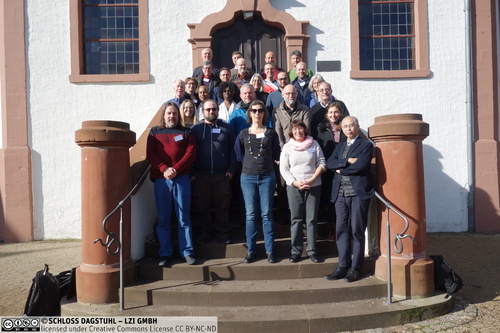
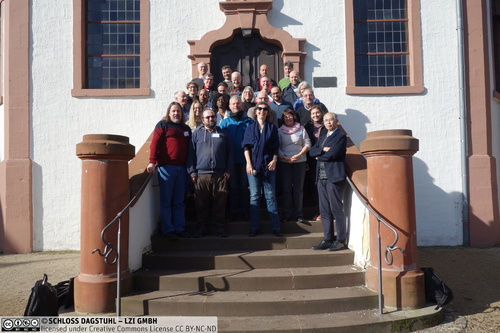
 Creative Commons BY 3.0 DE
Creative Commons BY 3.0 DE
